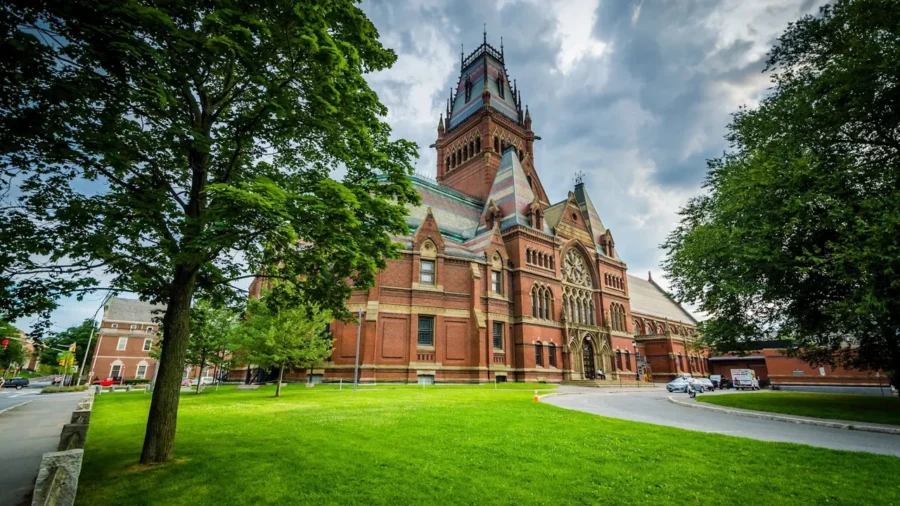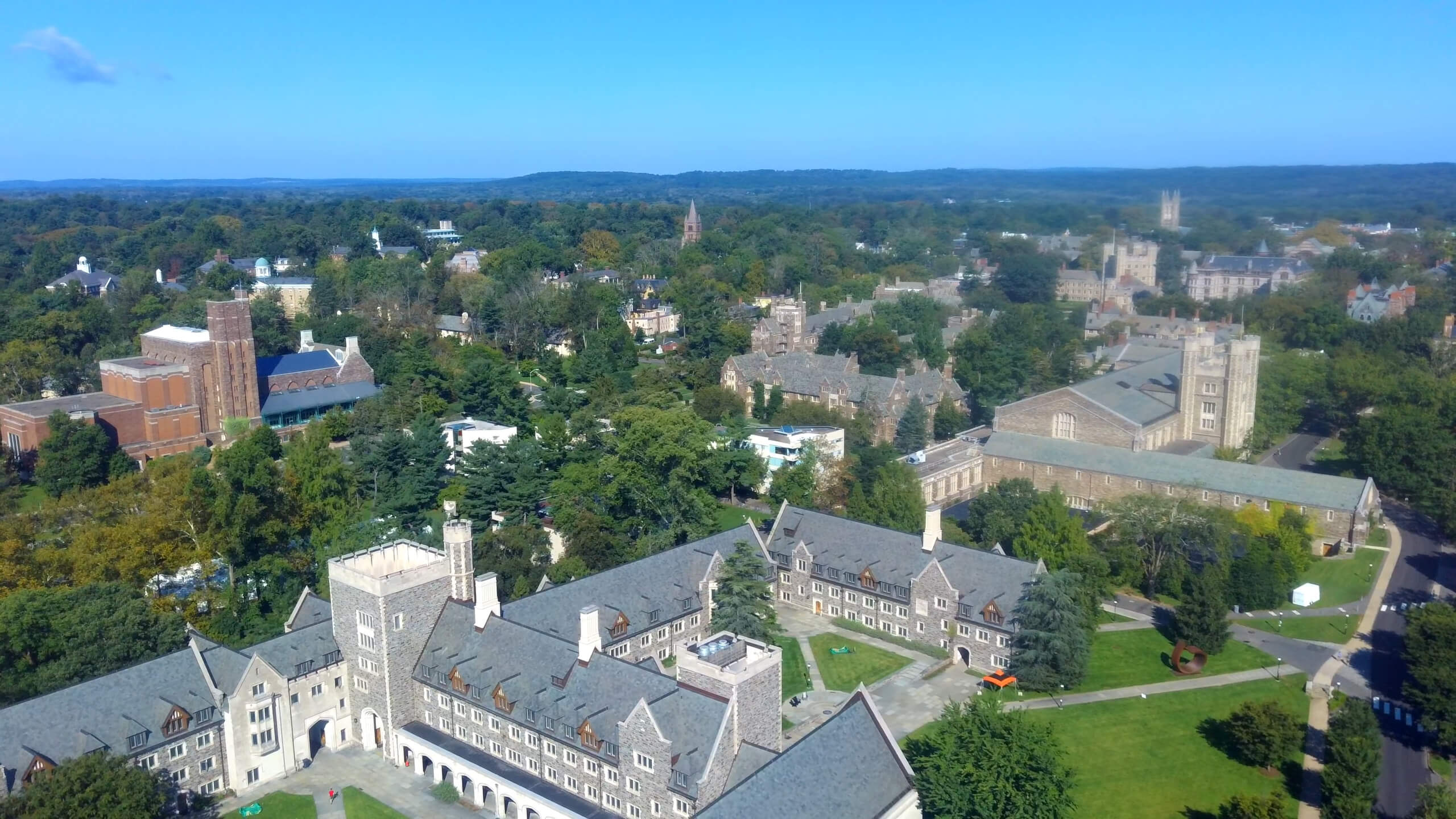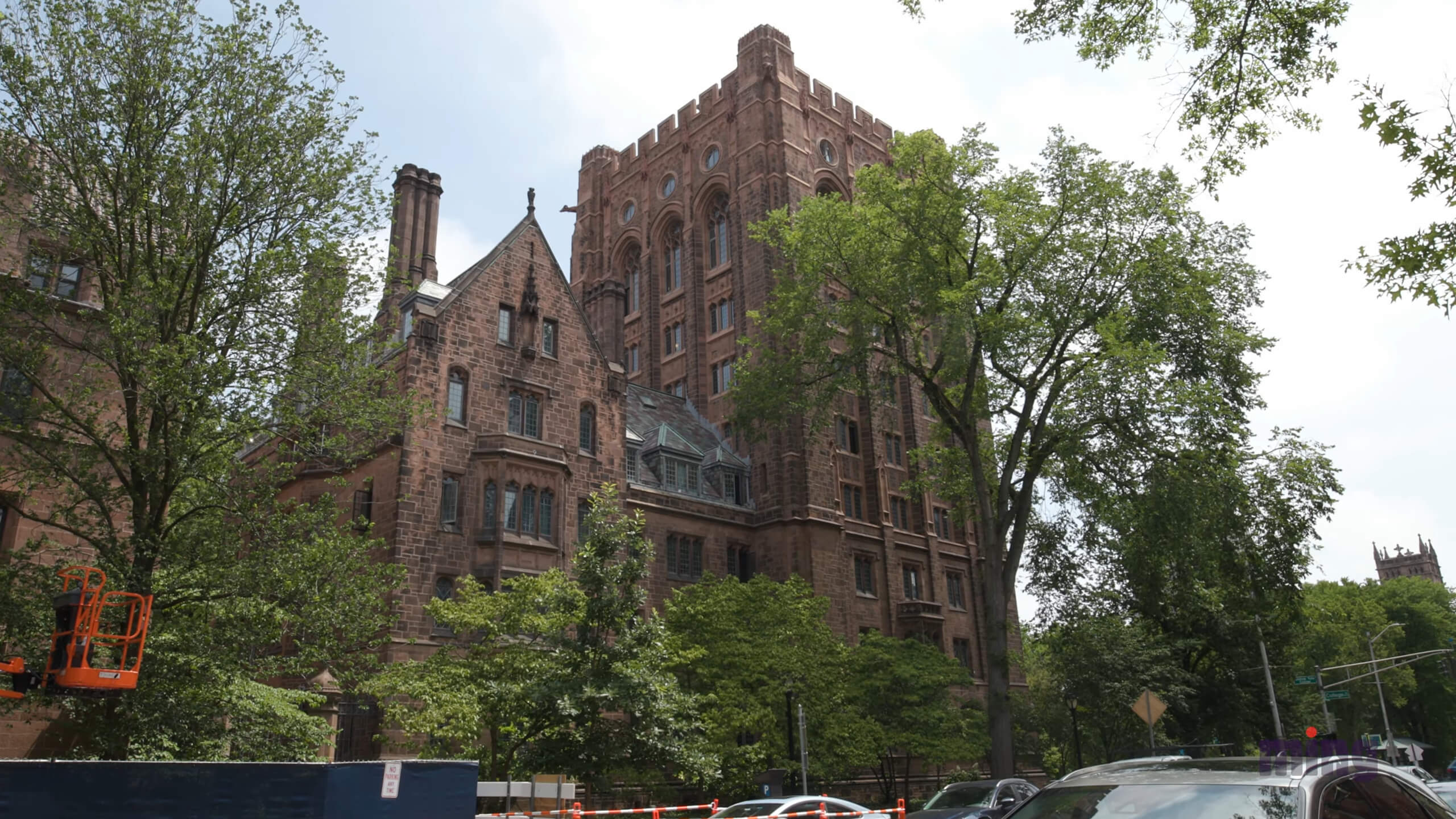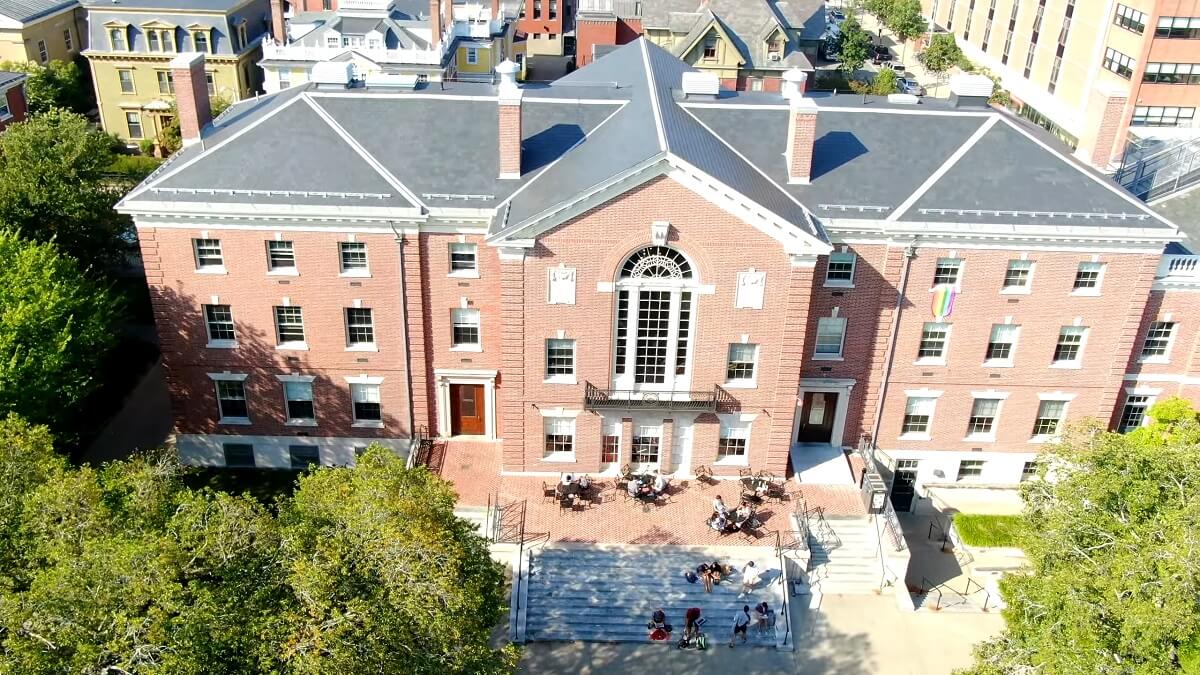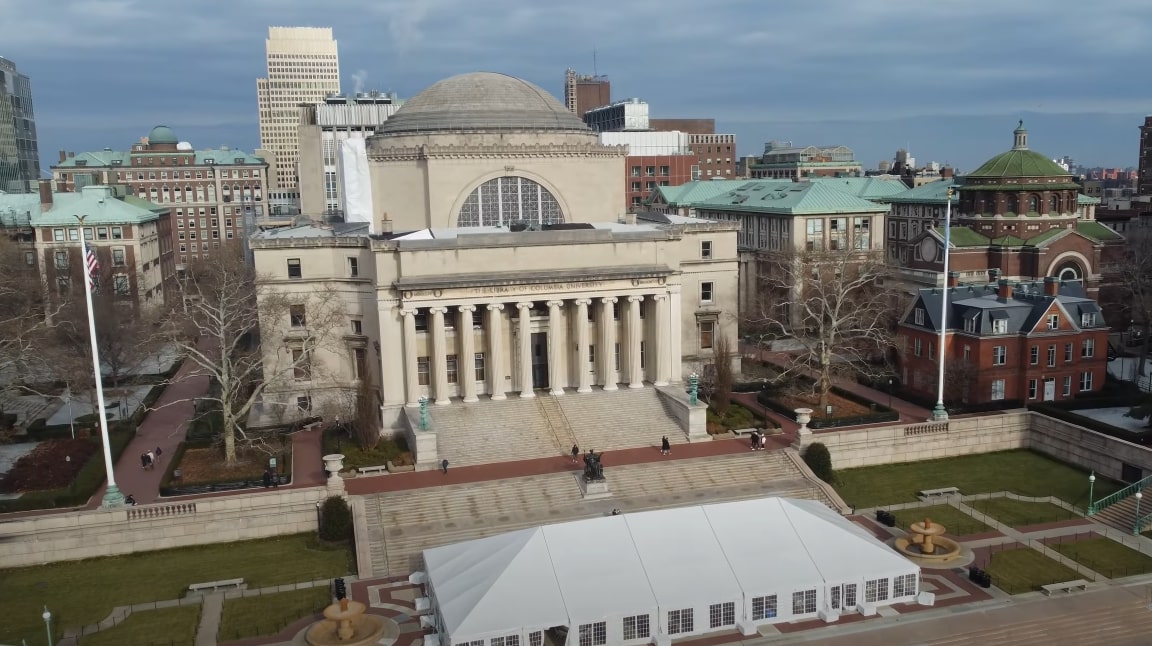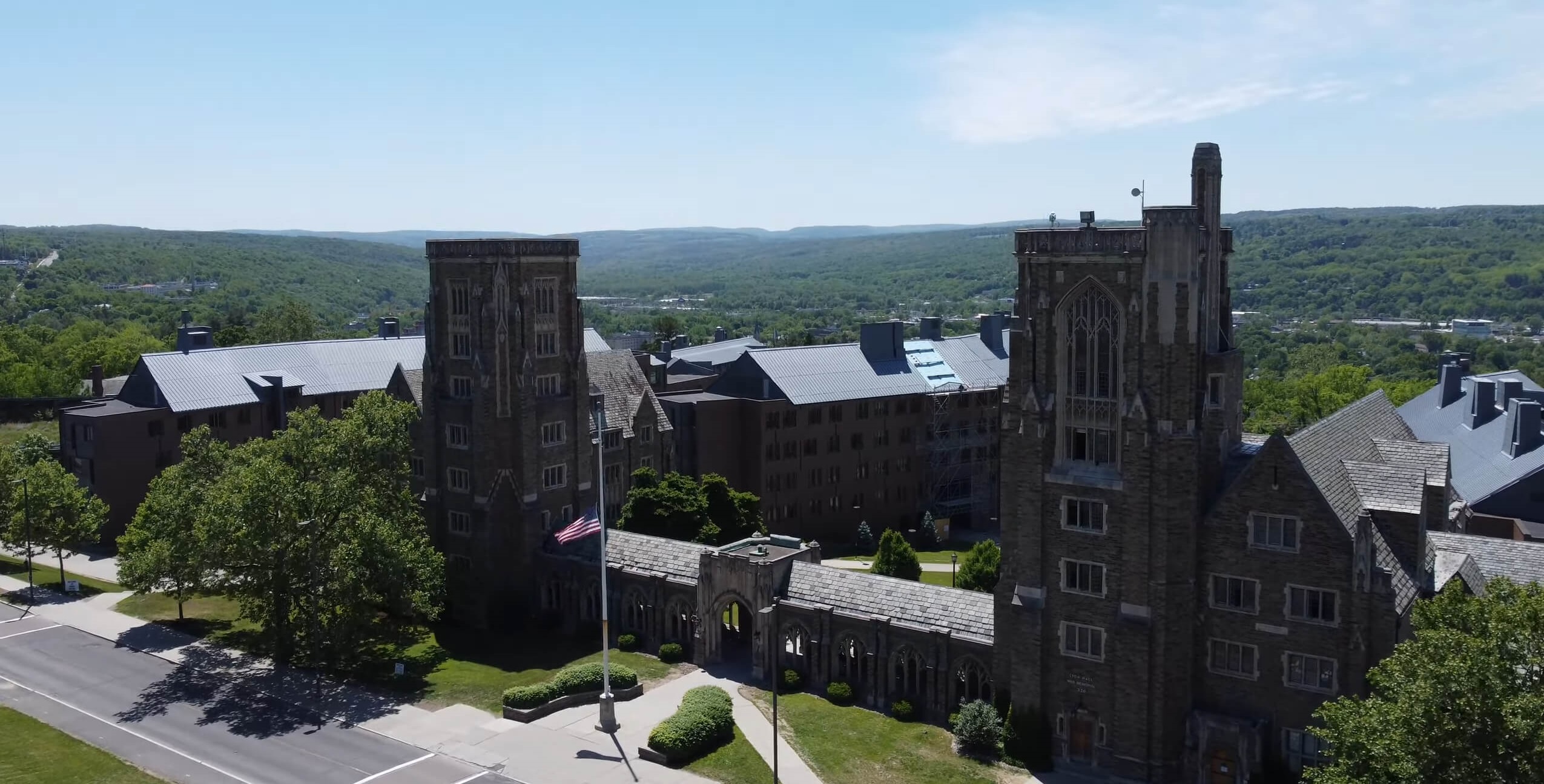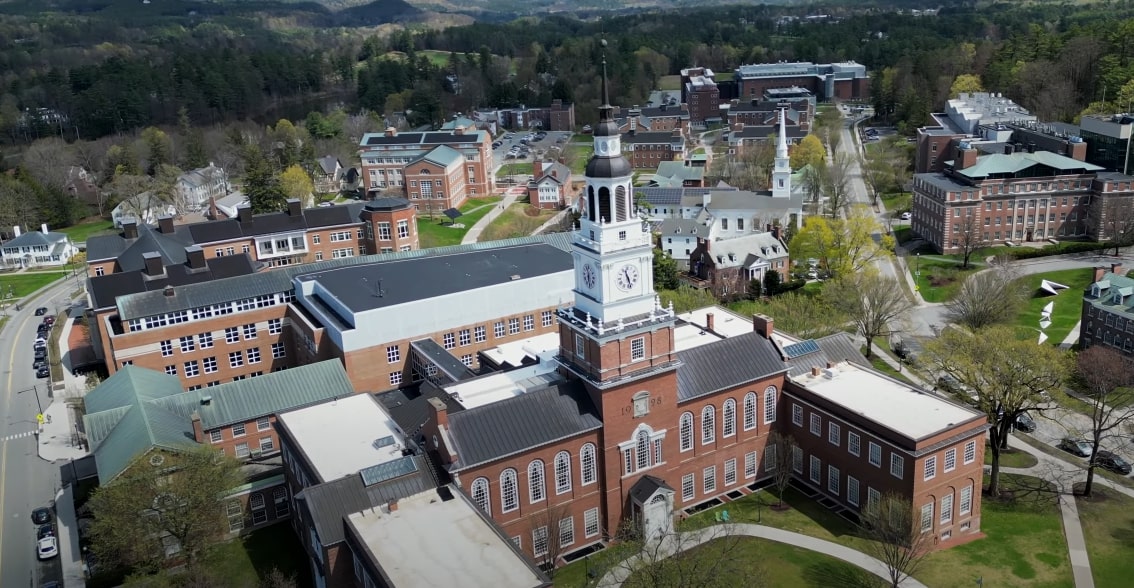Considered the pinnacle of higher education, Ivy League schools are renowned for their selective admissions, academic rigor, and exceptional career prospects. These eight private Northeastern institutions include prestigious names such as Harvard, Princeton, and Columbia. They boast illustrious alumni, from U.S. presidents to Nobel laureates, and offer students access to top-tier faculty, research opportunities, and significant financial aid.
Originally united by an athletic conference, the Ivy League has evolved to symbolize excellence in both sports and academics. Prospective students face a rigorous admissions process, needing extraordinary applications to join the ranks of these historic universities. Reviewing their U.S. News National University rankings can help applicants determine the best fit.
Table of Contents
ToggleKey Takeaways
- Ivy League schools are renowned for their highly selective admissions and academic excellence.
- These eight Northeastern institutions have a rich history of producing notable alumni.
- Researching school rankings helps applicants find the best fit.
List of the Ivy League Schools
1. Princeton University
Princeton University, located in Princeton, NJ, is renowned for being the fourth-oldest university in the United States, having been established over 270 years ago. Known for its exceptional research output, Princeton ranks as the No. 1 National University.
The university’s extensive resources include specialized libraries, modern laboratories, and an art museum housing nearly 100,000 works. Popular majors encompass social sciences, engineering, and computer science.
The institution features a 4-to-1 student-faculty ratio, facilitating close academic interaction. Princeton boasts some of the highest four-year graduation rates nationwide, and its alumni include U.S. presidents, Supreme Court justices, and Nobel laureates.
Financial Details
| Application Portal | Coalition Application, Common Application |
| Application Deadlines | Single-Choice Early Action: November 1 Regular Decision: January 1 |
| Decision Notification | Early Action: Mid-December Regular Decision: Late March |
| Required Documents | Transcript, School Report, Counselor Recommendation, Two Teacher Recommendations, Midyear School Report |
| Standardized Testing | Test-Optional for 2023-2025 SAT: 1490–1580 (average) ACT: 33-35 (average) TOEFL/IELTS/PTE Academic for non-native English speakers |
| Financial Aid | Grants instead of loans Average aid package: $72,000 Most families with incomes up to $100,000 receive full aid |
| Undergraduate Cost (2023-24) | Tuition: $59,710 Housing: $11,400 Food: $7,980 Miscellaneous: $4,050 Total: $83,140 |
| Contact Information | Email: [email protected] |
Academic Opportunities
- Undergraduate Programs: Princeton University offers a broad range of undergraduate programs, leading to either a Bachelor of Arts (A.B.) or a Bachelor of Science in Engineering (B.S.E.). Students can major in disciplines across humanities, social sciences, natural sciences, and engineering. Some popular programs include computer science, economics, and public and international affairs.
- Graduate Programs: Princeton provides numerous graduate programs, offering Master’s and Doctoral degrees in various fields. These programs are renowned for their rigorous academic standards and research opportunities. Key areas of study include engineering, humanities, social sciences, and natural sciences.
2. Harvard University
Founded in 1636, Harvard University in Cambridge, MA, holds the title of the oldest higher education institution in the U.S. Its selectivity contributes to its tied position for No. 2 in the National University Ranking.
Harvard hosts over 100 research centers and includes 13 schools, such as the top-ranked U.S. medical school and prestigious law and business schools. The institute maintains an impressive freshman retention rate and offers a vast array of extracurricular activities, with more than 445 student organizations.
Financial Details
| Application Portal | Common Application, Coalition Application |
| Application Deadlines | Restrictive Early Action: November 1 Regular Decision: January 1 |
| Decision Notification | Early Action: Mid-December Regular Decision: End of March |
| Required Documents | Transcript, School Report, Counselor Recommendation, Two Teacher Recommendations, Midyear School Report |
| Standardized Testing | SAT: 1490–1580 (average) ACT: 34-36 (average) TOEFL/IELTS for non-native English speakers |
| Financial Aid | Need-based scholarships Families earning under $85,000 pay nothing Full cost of attendance covered |
| Undergraduate Cost (2023-24) | Tuition: $61,710 Housing: $11,700 Food: $6,980 Miscellaneous: $4,150 Total: around $85,000 |
| Contact Information | Email: [email protected] |
Academic Opportunities
- Undergraduate Programs: Harvard University offers a comprehensive range of undergraduate programs across various disciplines including arts, humanities, social sciences, natural sciences, and engineering. Students can major in fields such as computer science, economics, biology, and more.
- Graduate Programs: Harvard provides a multitude of graduate programs leading to Master’s and Doctoral degrees in various fields. Popular graduate programs include those in business, law, medicine, and public health.
3. Yale University
Located in New Haven, CT, Yale University is celebrated for its drama and music programs, particularly at the Yale School of Drama. Yale, which ranks No. 5 among national universities, offers a broad spectrum of academic opportunities through its 12 professional schools, including the leading U.S. law school.
Students engage in global learning experiences, tackling international internships and research. Yale’s major fields of study include social sciences, biological sciences, and engineering. A historical landmark in higher education, it was the first U.S. university to award doctoral degrees.
Yale supports international education through the Whitney and Betty MacMillan Center for International and Area Studies.
Financial Details
| Application Portal | Common Application, Coalition Application, QuestBridge National College Match Application |
| Application Deadlines | Single-Choice Early Action: November 1 Regular Decision: January 2 |
| Decision Notification | Early Action: Mid-December Regular Decision: Early April |
| Required Documents | Transcript, School Report, Counselor Recommendation, Two Teacher Recommendations, Midyear and Final School Reports |
| Standardized Testing | SAT: 1480–1580 (middle 80%) ACT: 33-35 (middle 80%) TOEFL/IELTS for non-native English speakers |
| Financial Aid | Need-based, no loans Full cost of attendance covered for families earning less than $75,000 annually |
| Undergraduate Cost (2023-24) | Tuition: $62,250 Room and Board: $17,200 Miscellaneous: $3,000 Total: $82,450 |
| Contact Information | Email: [email protected] |
Academic Opportunities
- Undergraduate Programs: Yale University offers a diverse array of undergraduate programs through Yale College, covering disciplines such as humanities, social sciences, natural sciences, and engineering. Popular programs include Political Science, Economics, Biology, and Computer Science.
- Graduate Programs: Yale provides extensive graduate programs through its Graduate School of Arts & Sciences and 13 professional schools, offering Master’s and Doctoral degrees. Key areas of study include Law, Business, Medicine, and Environmental Studies.
4. University of Pennsylvania
Situated in Philadelphia, PA, the University of Pennsylvania combines a robust liberal arts education with preprofessional training. Founded by Benjamin Franklin, Penn attracts the highest number of international students in the Ivy League, representing over 100 countries.
Notable graduate schools include the Wharton School and the School of Engineering and Applied Science. Penn’s diverse programs span 50 countries, with over 2,500 students participating in international studies annually. More than 300 student organizations enrich campus life, ranging from political action committees to performing arts groups.
Financial Details
| Application Portal | Common Application, Coalition Application, QuestBridge National College Match Application |
| Application Deadlines | Early Decision: November 1 Regular Decision: January 5 |
| Decision Notification | Early Decision: Mid-December Regular Decision: Early April |
| Required Documents | Transcript, School Report, Counselor Recommendation, Two Teacher Recommendations, Midyear and Final School Reports |
| Standardized Testing | SAT: 1480–1570 (middle 50%) ACT: 33-35 (middle 50%) TOEFL/IELTS for non-native English speakers |
| Financial Aid | Need-based, no loans Full cost of attendance covered for families earning less than $75,000 annually |
| Undergraduate Cost (2023-24) | Tuition: $61,710 Room and Board: $16,784 Miscellaneous: $3,000 Total: $81,494 |
| Contact Information | Email: [email protected] |
Academic Opportunities
- Undergraduate Programs: The University of Pennsylvania (UPenn) offers a wide range of undergraduate programs through its four schools: the College of Arts and Sciences, the School of Engineering and Applied Science, the Wharton School, and the School of Nursing. Popular majors include Business, Engineering, Biological Sciences, and Social Sciences.
- Graduate Programs: UPenn provides numerous graduate programs, particularly through the renowned Wharton School, as well as in law, medicine, and education. The Wharton MBA program is especially notable for its selectivity and comprehensive curriculum, offering numerous majors and electives.
5. Brown University
Brown University in Providence, RI is distinguished for its open curriculum, enabling students to customize their education. Brown ranks No. 9 in national universities, known for fostering creative thinking and intellectual risk-taking.
The university offers over 80 multidisciplinary concentrations, including cognitive neuroscience and business. Its integrated program allows students to simultaneously earn undergraduate and medical degrees in eight years. Brown’s library system comprises six specialized libraries, and the university supports more than 500 student clubs and organizations.
All freshmen live on campus, creating a vibrant community atmosphere.
Financial Details
| Application Portal | Common Application, Coalition Application |
| Application Deadlines | Early Decision: November 1 Regular Decision: January 3 |
| Decision Notification | Early Decision: Mid-December Regular Decision: Early April |
| Required Documents | Transcript, School Report, Counselor Recommendation, Two Teacher Recommendations, Midyear and Final School Reports |
| Standardized Testing | SAT: 1500–1560 (middle 50%) ACT: 34-35 (middle 50%) TOEFL/IELTS for non-native English speakers |
| Financial Aid | Need-based, no loans Full cost of attendance covered for families earning less than $60,000 annually |
| Undergraduate Cost (2023-24) | Tuition: $64,486 Room and Board: $16,396 Miscellaneous: $2,000 Total: $82,882 |
| Contact Information | Email: [email protected] |
Academic Opportunities
- Undergraduate Programs: Brown University offers a distinctive approach to education with its Open Curriculum, allowing students to design their own course of study without the requirement of core courses. Students can choose from over 80 academic concentrations (majors) in fields such as Humanities, Social Sciences, Physical Sciences, and Engineering.
- Graduate Programs: Brown provides a range of graduate programs across various disciplines, emphasizing interdisciplinary research and academic excellence. Graduate programs are offered through the Graduate School and professional schools like the Warren Alpert Medical School and the School of Public Health.
6. Columbia University
Columbia University, situated in New York City’s Upper West Side, holds the title of the oldest higher education institution in New York. Ranking No. 12 nationally, Columbia has pioneered numerous technologies and movements, including FM radio and the first student advocacy groups.
The university’s three undergraduate schools—Columbia College, the Fu Foundation School of Engineering and Applied Science, and the School of General Studies—offer diverse academic programs. Its highly regarded graduate schools include business and law.
Columbia emphasizes global issues through nine global centers and numerous research opportunities. The university provides extensive on-campus resources and guarantees housing for four years.
Financial Details
| Application Portal | Common Application, Coalition Application |
| Application Deadlines | Early Decision: November 1 Regular Decision: January 1 |
| Decision Notification | Early Decision: Mid-December Regular Decision: Early April |
| Required Documents | Transcript, School Report, Counselor Recommendation, Two Teacher Recommendations, Midyear and Final School Reports |
| Standardized Testing | SAT: 1500–1560 (middle 50%) ACT: 34-35 (middle 50%) TOEFL/IELTS for non-native English speakers |
| Financial Aid | Need-based, no loans Full cost of attendance covered for families earning less than $60,000 annually |
| Undergraduate Cost (2023-24) | Tuition: $65,524 Room and Board: $16,156 Miscellaneous: $2,286 Total: $83,966 |
| Contact Information | Email: [email protected] |
Academic Opportunities
- Undergraduate Programs: Columbia University offers a wide array of undergraduate programs through Columbia College and Columbia Engineering. Students can choose from various majors across disciplines such as humanities, social sciences, natural sciences, and engineering. The Core Curriculum, a distinctive feature of Columbia College, ensures students gain a well-rounded education.
- Graduate Programs: Columbia provides extensive graduate programs through its numerous schools, including the Graduate School of Arts and Sciences, Columbia Business School, and Columbia Law School. These programs are known for their rigorous academic standards and research opportunities.
7. Cornell University
Established in Ithaca, NY, Cornell University stands tied at No. 12 in the national rankings. Unique among its peers, Cornell has a strong focus on public engagement and outreach. The university comprises several undergraduate colleges and professional schools.
Cornell’s diverse academic programs include the School of Hotel Administration and the College of Engineering. The university’s research facilities are top-tier, providing students with opportunities to engage in cutting-edge research. Cornell’s inclusive policy was notable early on, being among the first to reject racial and gender discrimination.
Financial Details
| Application Portal | Common Application |
| Application Deadlines | Early Decision: November 1 Regular Decision: January 2 |
| Decision Notification | Early Decision: Mid-December Regular Decision: Early April |
| Required Documents | Transcript, School Report, Counselor Recommendation, Two Teacher Recommendations, Midyear and Final School Reports |
| Standardized Testing | SAT: 1430–1530 (middle 50%) ACT: 32-35 (middle 50%) TOEFL/IELTS for non-native English speakers |
| Financial Aid | Need-based, no loans Full cost of attendance covered for families earning less than $60,000 annually |
| Undergraduate Cost (2023-24) | Tuition: $62,456 Room and Board: $15,246 Miscellaneous: $2,276 Total: $79,978 |
| Contact Information | Email: [email protected] |
Academic Opportunities
- Undergraduate Programs: Cornell University offers a wide range of undergraduate programs across its seven colleges and schools. Students can choose from various majors in fields such as agriculture, architecture, arts, engineering, business, and human ecology. Each college and school has specific requirements and recommendations for applicants.
- Graduate Programs: Cornell provides numerous graduate programs through its Graduate School and professional schools, including the Law School, Johnson Graduate School of Management, and College of Veterinary Medicine. These programs are known for their rigorous academics and research opportunities.
8. Dartmouth College
Located in Hanover, NH, Dartmouth College ranks No. 18 in the National University standings. Founded in 1769, Dartmouth is known for its rigorous academic programs and a strong sense of community. The college offers a unique D-Plan, allowing students to personalize their academic schedules with four 10-week terms each year.
Dartmouth has a strong commitment to undergraduate teaching, evidenced by its low student-to-faculty ratio. Popular academic disciplines include economics, engineering, and government. The college also emphasizes outdoor education and activities, leveraging its New Hampshire location.
Financial Details
| Category | Details |
|---|---|
| Application Portal | Common Application |
| Application Deadlines | Early Decision: November 1 Regular Decision: January 2 |
| Decision Notification | Early Decision: Mid-December Regular Decision: Early April |
| Required Documents | Transcript, School Report, Counselor Recommendation, Two Teacher Recommendations, Midyear and Final School Reports |
| Standardized Testing | SAT: 1430–1550 (middle 50%) ACT: 32-35 (middle 50%) TOEFL/IELTS for non-native English speakers |
| Financial Aid | Need-based, no loans Full cost of attendance covered for families earning less than $60,000 annually |
| Undergraduate Cost (2023-24) | Tuition: $62,058 Room and Board: $17,022 Miscellaneous: $2,039 Total: $81,119 |
| Contact Information | Email: [email protected] |
Academic Opportunities
- Undergraduate Programs: Dartmouth College offers a variety of undergraduate programs through its four main schools: the Arts and Sciences, Geisel School of Medicine, Thayer School of Engineering, and Tuck School of Business. The undergraduate experience is marked by the flexibility of the Dartmouth Plan, which allows students to customize their academic calendar. Popular majors include Economics, Government, and Computer Science.
- Graduate Programs: Dartmouth provides numerous graduate programs, particularly through the Guarini School of Graduate and Advanced Studies, as well as professional programs in the Tuck School of Business, Thayer School of Engineering, and Geisel School of Medicine.
College Admissions – Get a Step Ahead!
Various criteria such as academic performance, extracurricular involvement, and personal essays play a crucial role in admissions decisions. Admissions officers consider a multitude of factors, sometimes maintaining detailed lists of applicant attributes. Preparing early by selecting challenging courses, participating in meaningful activities, and securing strong letters of recommendation can provide applicants with a significant advantage. Engaging in summer programs and internships related to prospective fields of study also helps build a compelling application.
The Ivy League schools, with their rich history and academic excellence, offer unparalleled opportunities for students. Each institution has unique strengths and traditions that contribute to their distinct identities within the landscape of higher education.
Frequently Asked Questions
What qualifies a school to be part of the Ivy League?
The Ivy League is not just an academic classification but also an athletic conference. It includes eight private universities located in the northeastern United States. To be considered part of the Ivy League, a school must meet specific criteria such as historical significance, academic excellence, and athletic participation. These schools are known for their rigorous admission standards and distinguished reputations.
How do the acceptance rates compare among Ivy League institutions?
Ivy League schools are highly selective, with acceptance rates often below 10%. Each university has its own unique criteria and standards. Harvard, Yale, and Princeton typically have the lowest acceptance rates, hovering around 4-6%. Other universities like Cornell and Dartmouth have slightly higher rates, closer to 10%.
What is the historical origin of the term ‘Ivy League’?
The term ‘Ivy League’ originated in the mid-20th century and was initially used to refer to the athletic conference that included these prestigious schools. It is believed that the term “Ivy” may refer to the age and traditional ivy-covered buildings of these universities, symbolizing their long-standing history and academic tradition.
How do Ivy League universities rank nationally and globally?
Ivy League universities consistently rank among the top schools both nationally and globally. According to various rankings, including those by U.S. News & World Report and QS World University Rankings, institutions like Harvard, Yale, and Princeton often occupy top positions. These rankings consider factors such as academic quality, faculty credentials, and research output.
What colleges are part of the Ivy League?
The Ivy League consists of the following 8 universities:
- Harvard University
- Yale University
- Princeton University
- Columbia University
- University of Pennsylvania
- Dartmouth College
- Brown University
- Cornell University
Each of these schools is renowned for its unique campus culture, academic strength, and alumni network.
What are common misconceptions about Ivy League and similar prestigious schools?
Several myths surround Ivy League schools. One common misconception is that attending an Ivy League guarantees career success. While they provide a strong network and excellent opportunities, individual effort and achievements play a critical role. Another misconception is that Ivy League schools are unaffordable; in reality, they offer substantial financial aid packages to qualified students. Lastly, some believe that Ivy League students are elitist or socially exclusive, which overlooks the diverse and inclusive communities fostered on these campuses.
Last Words
Originally forming an athletic conference, the Ivy League has come to symbolize elite education, blending rigorous academics with strong athletic traditions. Admissions to these institutions are highly competitive, requiring extraordinary applications. Evaluating U.S. News National University rankings can help applicants find their best fit among these elite schools.

